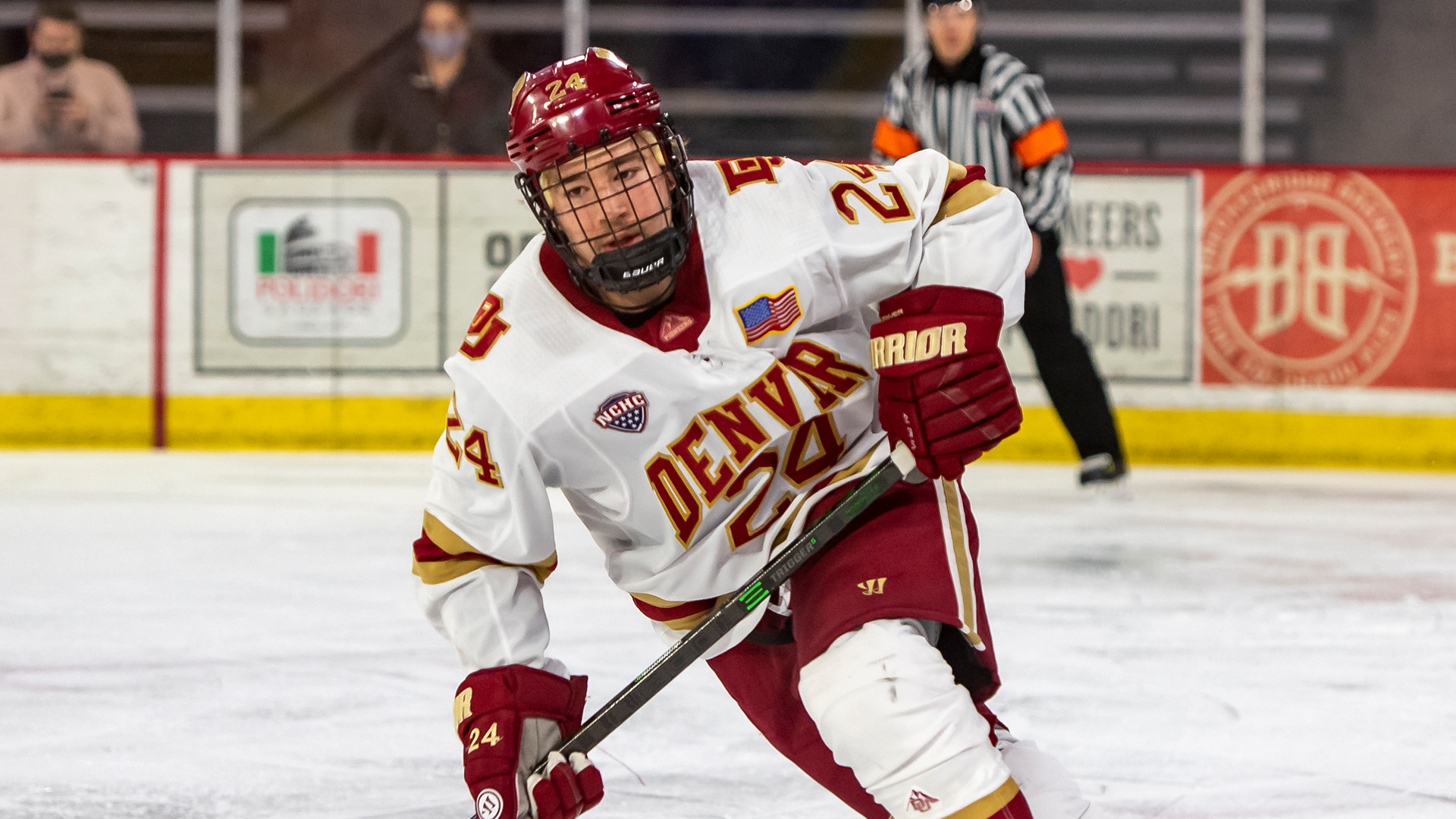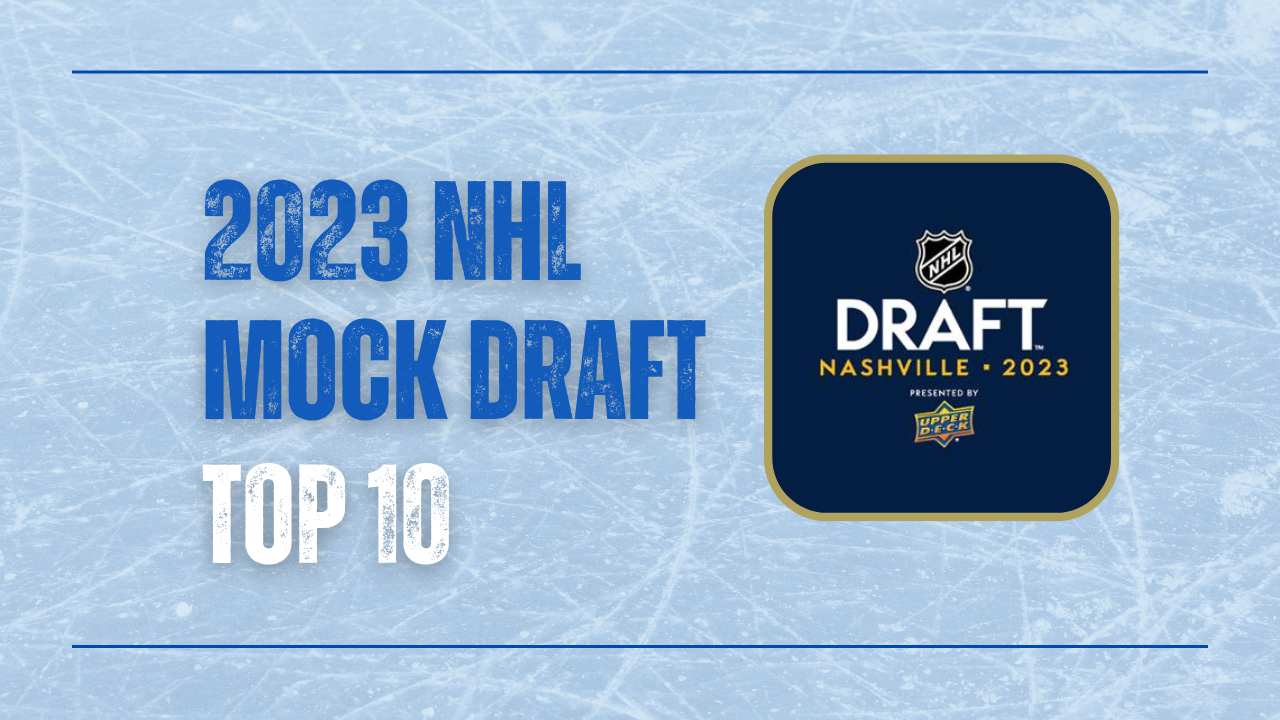In 2019, the Philadelphia Flyers selection of Bobby Brink 34th-overall was highly regarded as a potential steal. Though concerns surrounded his skating ability, many viewed Brink as a prospect with enormous top-six forward potential.
Year-one of his tenure at the University of Denver did not disappoint. He recorded 11 goals and 13 assists through 28 games while also being named to NCAA (NCHC) All-Rookie team. Though he played a minimal role, Brink earned a spot on Team USA’s U20 World Junior Championship roster. All signs pointed to a productive sophomore campaign with potential discussions of an entry-level contract at its conclusion.
Unfortunately, that is not how the year played out. Due to his return to the USA’s WJC roster, Bobby Brink played in just 15 of Denver’s 24 games, posting just two goals and nine assists. He looked much more productive at the World Juniors, registering two key goals and four assists in seven games. However, while playing his collegiate season, Brink looked far from the dynamic scorer that graced the ice his freshmen year.
What Ailed Bobby Brink
Let’s address the key point typically raised to defend Brink’s down year at Denver immediately. Due to the global pandemic, almost every person in every line of work experienced a peculiar and strenuous year. For prospects hoping to progress along their developmental path, the 2020-21 season presented numerous roadblocks. For some, the opportunity to play was either limited or non-existent. That being said, the NCAA did a fantastic job making it possible to play. Add in a successfully executed World Junior’s, and Bobby Brink received much more opportunity to play than others.
Now, this does not negate that Covid-19 likely played a role in Brink’s challenging year. It most likely did. However, observable flaws in his overall game were also apparently, probably playing more of a role than the unprecedented circumstances surrounding the year.
As mentioned previously, the biggest nock on Bobby Brink heading into the 2019 NHL Entry Draft was his lack of skating ability. A respectable amount of scouts noted that it could be the thing that prevents Brink from reaching the ultimate goal of becoming a permanent fixture in the NHL. Although his skating failed to prevent a successful freshman campaign, it certainly held him back during his sophomore season.
Going back and taking in a lot of Brink’s games for Denver, it is apparent that his lack of skate speed diminished his effectiveness on the whole. In countless situations, he entered the zone or got into position too late, eliminating any opportunity to deliver a positive contribution. On too many occasions, Brink skated into position just before a teammate is ready to take the puck up the ice, serving as more of an obstacle than an asset.
The same holds true for his ability to skate into either the offensive or defensive zone promptly. He always appeared to be the last player entering the zone, leaving his team short-hand and taking away impactful opportunities. In truth, Brink only appeared effective when he was by chance positioned in an area where he could be ahead of the play, typically creating offense off his own stick. Even then, his hand speed and puck-handling did not match what was taking place on the lower half of his body. Yes, he displayed the skill that could make him a dynamic talent; however, his skating stride continued to look laborious and discombobulated.
One may look to his performance at the World Juniors to counter any argument presented about his struggles. Yes, Brink made an impact on the eventual gold medal-winning USA. However, the role bestowed upon him was far different from that of Denver, and many expect him to play professionally. Still, he registered two goals in seven games. At the same time, both goals resulted from Brink positioning himself in front of the net. By doing this, Brink eliminated what essentially held him back all year.
Bobby Brink remains a highly-skilled forward with a strong hockey IQ. Those assets hid the deficiencies in his game during his freshman year. Unfortunately, year two with Denver demonstrated that they won’t always bail him out.
The Year Ahead
Yes, it is cliche, but Bobby Brink’s junior season at Denver is crucial for his projected future. Down years happen. Even though many expected him to build off his 11-goal freshman year, the fact that he struggled doesn’t necessarily translate to “doom and gloom” moving forward. Still another comparable campaign this season could prove catastrophic.
The offseason is a time used to improve on areas of weakness while continuing to strengthen the areas that make you valuable, to begin with. There is no denying that what makes Bobby Brink valuable could launch him into a productive career in the NHL. However, the aspect of his game that haunts him could prevent the 20-year-old from ever cracking the Philadelphia Flyers roster.
Now, improving his skating mechanics and speed should always be at the top of Brink’s to-do list. At the same time, looking to adjust his playing style may also prove beneficial. Of course, that is not only on the player but the coaching staff as well. If there are clear limitations to Brink’s skating, it is up to David Carle & Co. to assist him in making adjustments that set him up for success both at the collegiate level and beyond.
Although Bobby Brink’s deficiencies were on display last season, not all is lost for the Flyers’ prospect. At this juncture, he remains an intriguing member of Philadelphia’s farm system. Unfortunately, that can quickly change if he fails to turn things around this upcoming season.
Photo Credit: Brittany Evans (www.denverpioneers.com)
Follow me on Twitter @PodStreetGove
For more Flyers coverage, follow and subscribe to High & Wide Hockey on Facebook, Twitter, and Youtube!
Discover more from HIGH AND WIDE HOCKEY
Subscribe to get the latest posts sent to your email.



